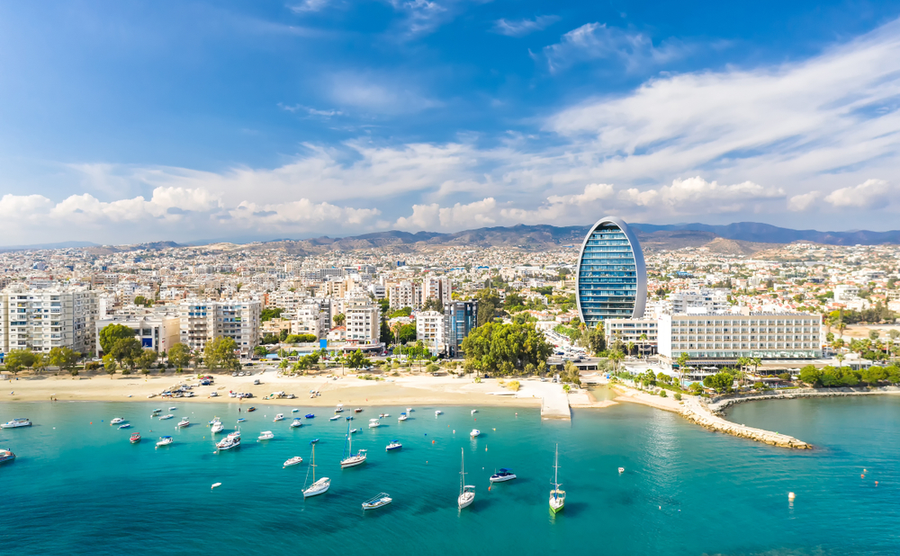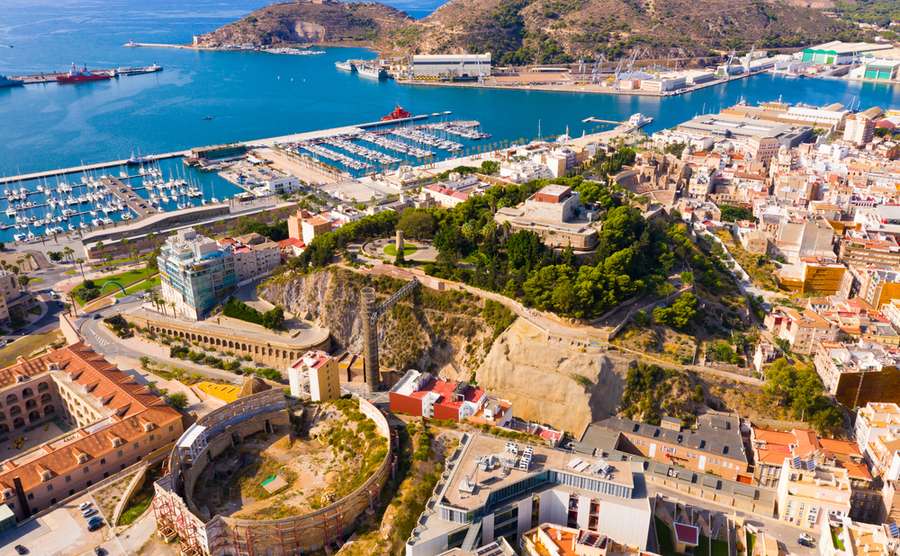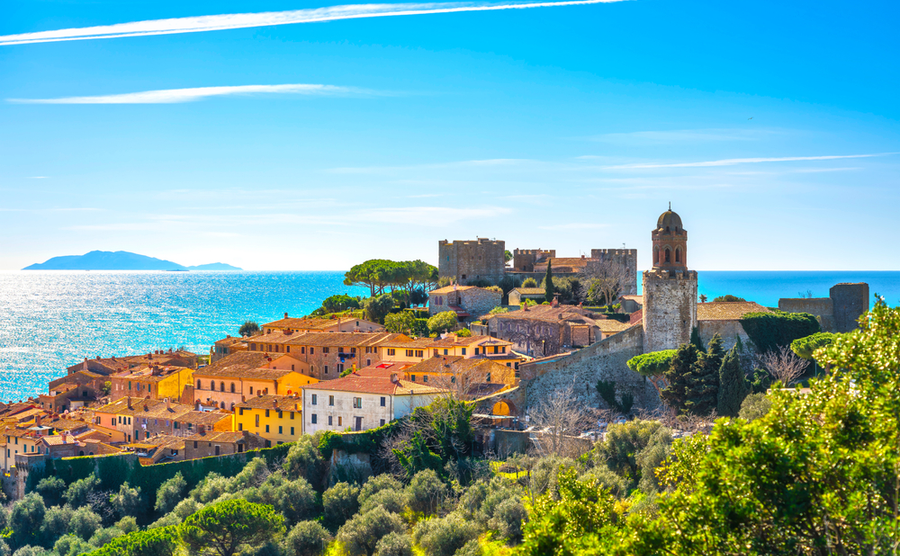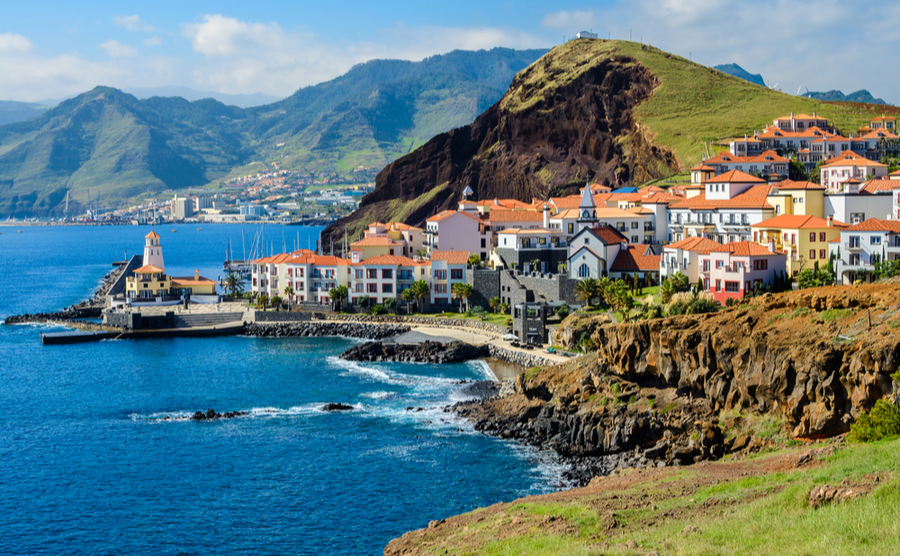Brexit, schmexit: a year after the transition period ended Brits are buying homes and planning exciting retirements in our favourite European destinations just like we always did. Processes have been smoothed out, a host of professionals are on hand to help us fill in the forms and the welcome is as warm as ever. We look at some of the key developments over the past 12 months.
2021 was the year that UK citizens lost their automatic right to travel freely and apply for residency in the European Union. Yet, even with the unexpected curveball of Coronavirus, estate agents in the UK’s favourite European destinations reported respectable sales to British buyers during 2021. Many of these purchases have been to people relocating for a new life in the sun.
The two issues that most worried British people planning to buy abroad were the options for gaining residency and access to healthcare.
What would it cost to get a visa, and how long would it take? How much would health insurance cost, and what if you have a pre-existing condition like high blood pressure or diabetes, let alone recovering from cancer?
All we knew was that now classed as third-country nationals, British people no longer had any of the entitlements that came with EU citizenship.
When it comes to buying property overseas, there’s nothing we recommend more than going on a viewing trip. Physically seeing the property can avoid wasted time, money and buyer’s remorse. Download your free guide to planning your viewing trip.
A year down the line and the good news is that plenty of trail-blazing Brits bought and moved successfully to Spain, France, Portugal and elsewhere in Europe last year.
This is thanks not only to their positive approach but also the efforts of service providers in the property sector, including property agents, law firms, IFAs and currency specialists.
These professionals have recognised the new post-Brexit requirements of British clients and the good ones have adapted their services accordingly, providing the necessary reassurance and support.
Not forgetting that most EU states have always welcomed non-EU citizens to their shores. – the entry process might be a bit different but the opportunities are there and systems are in place.

Still pleased to see us!
Perhaps more crucially than the legal procedures being ironed out, is the positive attitude of local authorities. For example, on the Costa Blanca, where local leaders have effectively called for post-Brexit rules to be abandoned and business to continue as normal.
Meanwhile, a shot in the arm for second homeowners and tourists is that the EHIC reciprocal healthcare scheme is continuing. This includes the use of the new GHIC cards, which replaces your EHIC when it expires. Just remember that these cards are intended for ‘necessary care’, such as emergencies.
They do not replace being registered and having access to the local healthcare system or having appropriate medical insurance if you’re becoming a resident somewhere.
Now, let’s look a little closer at how things have panned out.
Cyprus
Affordable retirement visa!
With its strong historical ties and sense of familiarity with the UK, sunny Cyprus unsurprisingly has one of the most affordable residency options for retired British people.
Since 1st January 2021, most new arrivals opt for the so-called Category F permit for getting permanent residency status on the island. The key requirements are proof of Cypriot address – either a property you have purchased or a long-lease for a rental, and proof of an annual income of approx €10,000 (and additional €5,000 for each dependent or spouse) – holders of this permit are not allowed to work in Cyprus. This compares very favourably to most other popular retirement destinations.

The beautiful port city of Limassol
It is common to apply for a visa before leaving the UK, but applicants are also opting to do it after arriving in Cyprus. This is possible thanks to the island’s temporary residence permit – dubbed the ‘pink slip’, which allows third-country nationals, including Brits, to extend their stay in Cyprus for more than 90 days, giving them time to buy a property and then apply for a Category F permit.
Category F permits are taking between a year and two years to be issued but there is a fast track version of it. The speedier route to permanent residency, known as a Category 6.2, requires applicants to purchase a new property with a value of at least €300,000 and be able to prove foreign income of €30,000 or more (increased by €5.000 for a spouse and each child). Again employment in not permitted. Residency permits should be granted within a couple of months.
Tax benefits
The benefits of moving to Cyprus aren’t all about the lifestyle. The likelihood is you’ll have more money to spend each month compared to in the UK, thanks to its low taxation, a perk that continues to attract British retirees in 2022 and beyond.
In fact, Cyprus is one off the most tax friendly countries in Europe. According to an index by the Institut Economique Molinari, Cyprus’s tax freedom (or liberation) day of 14th April is the earliest in Europe. Tax freedom day is the date on which an average citizen of a country has earned enough to pay off all taxes for that year. Based on 2021 figures, second best in Europe is Malta, nine days after Cyprus, while the UK (11th May) is third.
As a foreign pensioner, you are especially well looked after in Cyprus. You can opt to have your income (including overeas pension) taxed at the usual income scale rates, which means you wouldn’t pay any tax on income of up to €19,500. Or instead you can opt for your foreign pension/income to be taxed at a fixed rate of just five per cent, with the first €3,420 completely tax free. In addition, thanks to a condition in the UK/Cyprus double tax treaty, your pension would be taxed only in Cyprus (there are separate rules for UK Government pensions).
Find your perfect home in Cyprus
Revamped healthcare system
Timely for Brits arriving in Cyprus after Brexit, the island launched a revamped version of its state healthcare in 2019. A universal service called the General Healthcare System (or GESY), costs are covered by both the state and through co-payments. Certain residents, such those on a low income, are entitled to a medical card that makes co-payments either free or lower than resident who don’t qualify for the card. As in other EU countries, UK pensioners who present an S1 form will be entitled to the same level of free healthcare as Cypriot pensioners.
Cyprus also has a large choice of private healthcare options. It’s common for residents who would otherwise be liable for state healthcare co-payments to get private cover instead, whether full comprehensive cover or for certain treatments. New arrivals who don’t have an S1 form should ensure they have suitable private cover, at least until they have properly assessed their entitlements to state healthcare once they have permanent residency.
Generally though, the quality of treatment across both public and private clinics and hospitals is highly rated.
Lasting legacies
Brexit or no Brexit, many of Cyprus’s ties with its British colonial past remain in place and for many expats this will always give the island an edge other Mediterranean destinations.
These include English being effectively a second language with road signs and menus typically in English as well as Greek, cars driving on the left, English-run bars and shops and British high street names in the larger towns and resorts, and most Cypriot law being based on English common law.
Spain
Non-lucrative visa
Spain’s non-lucrative visa has become the most popular route for British people to get residency in the Costas. Applicants are not permitted to work in Spain, making it especially suitable to retirees and early retirees.
A key requirement is proving you have adequate financial means to support yourself for the first year, after which you can renew your residency. The amount of savings needed for a successful application is based on Spain’s average minimum income (IPREM). This currently stands at circa €27,500 but applicants are advised that this figure fluctuates in line with the IPREM. For each additional family member, circa €6,500 is required. Another requirement is having private medical cover for your first year of residence.
Discover your perfect holiday home in Spain
Given the paperwork involved, most people are using an Anglo-Spanish law firm to assist with their visa application, acknowledging that the small fee charged for the service is more than worth it. The good news is that after a year of handling UK applicants, the Spanish Government has streamlined the process in two ways. Considering that applicants must visit a Spanish Consulate in the UK before the visa can be granted, an online appointment booking system now has been introduced, a move that has sped up the whole process. Recent applicants have reported receiving their visa within two weeks of their appointment!
Secondly, UK pensioners can now present the Consulate with an S1 form, which entitles them to Spanish state healthcare as soon as they arrive in Spain, in place of proof of private medical cover, thereby saving the applicant money. Hopefully, there will be further tweaks to the application process, making things even faster and easier.

Cartagena, Costa Cálida: Spain’s affordable coastline
Pricier Golden option!
The other way for British citizens to secure residency status in Spain is through its Golden Visa scheme. This is a more expensive option compared to the non-lucrative option, as applicants need to invest at least €500,000 in property to be eligible, but arguably it offers more flexibility. Applicants can opt for alternative higher value investment options. A Spanish Golden Visa offers the opportunity to travel and move freely between other countries in the European Union without a visa (free movement in the Schengen Area) and the option to remain tax resident outside of Spain.
S1 and healthcare
Scaremongering before Brexit painted a picture of expats being excluded from state healthcare services and priced out of expensive private medical cover. Thankfully this was a long way off the truth.
It was confirmed last year that British pensioners have automatic entitlement to the same level of state healthcare as Spanish citizens as soon as they arrive in Spain. They get this by applying for an S1 form from the Overseas Healthcare Service before moving over and then registering it with the local INSS office (Spanish Social Security Office) once there. Another benefit for pensioners is that they can also apply for a GHIC card for use when visiting other EU countries.
New arrivals who are not pensioners will need private health insurance for the first year of residence, but after that they can apply to join the public health insurance scheme, called the Convenio Especial. Regardless of pre-existing medical conditions, the monthly fee for this is €60 (under 65 years of age) or €157 (aged 65 and over), which gives you access to the Spanish health system. As some expats have discovered though, there may be suitable private medical insurance that costs less.
Italy
Visa
As British expats are discovering, Italy has a range of investor/ business visas for professionals and people intending to work. But its Elective Residence Visa (ERV), also dubbed its retirement visa, has become the most popular route for retirees in search of ‘la dolce vita’. A type of non-lucrative visa, applicants are not permitted to work and must show proof of a minimum income of at least €31,000 per annum, or €38,000 for a couple, as well as private medical insurance and accommodation (rented or owned property). It is renewable and with it you can apply for temporary residency. Applications are made through the Italian Consulate in the UK.
Search for homes across Italy on our portal
Healthcare
Italy has a highly rated residency-based healthcare service (Servizio Sanitario Nazionale or SSN), for which you can register and use in the same way as Italian citizens as soon as you have residency status. If you are not working and don’t qualify for free registration, for example you are an early retiree, you must opt for what is called voluntary registration (Iscrizione volontaria), for which you pay an annual fee. As in other EU countries, all users of the SSN – free or not – must pay small fees for certain elements of the service. The alternative is to opt for private medical cover.
As in other EU countries, UK pensioners moving to Italy in 2022 can gain immediate access to the local health service by registering their S1 form on arrival. Equally, GHIC/EHIC cards remain valid there.
Financial sweeteners for the ‘la dolce vita’
Dilapidated village houses for sale for just €1 is a well-publicised ‘carrot’ that Italy has dangled in front of adventurous foreign buyers in recent years. Part of the ‘one-euro-home’ scheme, the idea is that the property, typically in tired communities that need bringing back to life, can be purchased for next to nothing on condition the buyer renovates it.
But incentives by the Italian government don’t stop there, with 2022 shaping up to potentially be a favourable year for Brits to move out there.
For starters, the country’s so-called ‘110% Super-bonus’ subsidy, which was launched in 2020 and entitles buyers to claim back the costs of building work relating to energy efficiency and seismic improvements, has been extended. Applicable for use with ‘€1 homes’, it was scheduled to end at the end of 2021.

Coast and country in Castiglione della Pescaia, Tuscany
Meanwhile, Italy offers a special reduced income tax rate to retirees who move to qualifying communities (less than 20,000 inhabitants) in one of its southern regions (Sicily, Calabria, Sardinia, Campania, Basilicata, Abruzzo, Molise and Puglia). Under its Special Tax Regime (for Retirees), qualifying applicants pay a flat tax rate of just seven per cent on any foreign sourced income, including their overseas pension. In addition, applicants do not need to disclose nor pay wealth taxes (IVAFE and IVIE) on any foreign financial investments and real estate located outside of Italy. The scheme begins in the year that the taxpayer becomes tax resident in Italy and lasts for the following nine years (so 10 years in total).
There is further good news for individuals moving to Italy to work, who could benefit from the country’s Special Tax Regime. The key benefit being an income tax exemption of 70 per cent for five years (the first year of tax residency plus the following four). If the applicant resides in one of the southern regions, this jumps to a 90 per cent exemption. A five-year extension is available when certain conditions are met. Since the start of 2021, foreigners moving to Italy but working remotely for overseas companies are also eligible.
Italy’s Special Tax Regime also caters for high-net-worth individuals. Those who qualify benefit from a €100,000 flat tax rate on all foreign income for the duration of 15 years.
Portugal
D7 visa – Portugal’s silver bullet
Portugal is a dab hand at opening its doors to citizens from outside Europe. A decade ago it launched a successful scheme to attract investment oriented third-country nationals. This came in the shape of its Golden Visa, an option that could suit certain British buyers today.

Madeira, where a €500,000 property can still bag you a golden visa
However, it is the D7 Visa, also known as the Retirement Visa or Passive Income Visa, that has proved to be the more feasible route to Portuguese residency, especially for retirees, early retirees and entrepreneurs. The key requirement for a successful application is to be able to demonstrate receipt of regular passive income (a minimum of Portugal’s current national minimum wage), typically derived from a pension, rentals, dividends or certain categories of investment.
Discover your perfect home in Portugal
Including renewals, the visa is valid for five years, after which holders are eligible to apply for a permanent residency permit and Portuguese citizenship. The application can be started through the Portuguese Consulate in the UK, and to speed up the process today applicants are being advised to open a bank account in Portugal and deposit an amount equal to 12 months’ income.
More transient Brits, including mobile entrepreneurs who don’t intend to spend much time in Portugal, are finding the Golden Visa a better match for their needs, although the rules changed this year limiting the scheme’s eligibility in popular parts of the country. In short, it allows applicants to gain Portuguese residency and all the trimmings of being an EU resident by acquiring a property worth €500,000 or €350,000 if the property is more than 30 years old and needs renovation. Other types of investment are eligible also.
Save money with NHR?
One of Portugal’s key attractions for foreign residents in 2022 continues to be its Non-Habitual Residence (NHR) regime. NHR is a tax scheme that entitles expats to enjoy very low taxation.
Its main benefit is that investment income received from abroad is exempt from Portuguese taxation for 10 consecutive years (provided it is eligible for taxation in the country under tax treaty rules).
It’s feasible that British expats could receive UK rental income, capital gains on real estate, interest, dividends and non-Portuguese employment income completely tax free.
Similarly, under NHR foreign pension income is taxed at just 10% (this excludes UK Government pensions) – the savings can be substantial for higher rate taxpayers.
Universal health system
Scaremongering before Brexit painted a picture of expats being excluded from state health services and priced out of expensive private medical cover.
Thankfully this was a long way off the truth. Like the UK, Portugal has a residency-based (universal) national health service, namely the Portuguese Servico Nacional de Saude (SNS), which provides the usual general hospital and local health centre services.
Small fees do apply for everyone though, such as €5 to see your GP or €15 to go to A&E. Most Portuguese people and expats supplement the SNS and use private healthcare for certain procedures (or to avoid waiting lists). During your visa application process, you will likely need to show evidence of private medical insurance, to cover you until you have formal residency status and signed up to the SNS.
British pensioners moving to Portugal have automatic entitlement to Portugal’s SNS from the word go. They get this by applying for an S1 form from the Overseas Healthcare Service before making the move over.
France
Long and short of the Long Stay Visa!
As the dust settled after the transition period, British people moving to France discovered a clear route to getting residency there – the Long Stay Visa (Visa de Long Séjour), essentially a permit for anyone wishing to stay longer than six months.
Discover your perfect home in France
Applying for this is done before you cross the Channel through the French Consulate in London. There are variations of the Long Stay Visa, each depending on the applicant’s situation, but most common is the Visa de Long Séjour valant Titre de Séjour – Visiteur (VLS-Visiteur).
Once you have this and have arrived in France, it’s a just a case of applying for a five-year Carte de Séjour but this is not necessary until a couple of months before the VLS-Visiteur expires. The next and final step to permanent residency is applying for a Carte de Séjour Permanent, which you get from your local Prefecture.

Picture perfect, in Provence
A key requirement for obtaining a VLS is being able to prove an income equal to or greater than France’s minimum working wage (SMIC), which is circa €1,250 net (€1,500 gross) per month, although this is less for people over 65 and living alone. However, applications are on an individual basis and having substantial savings and/or rental income and owning a home mortgage-free often will be considered. Equally important is being able to show proof of suitable healthcare cover.
You can’t apply for your VLS-Visiteur more than 90 days before arriving in France, which should be enough time to coincide the completion of your new French home with your arrival date. Keep this in mind during your planning.
Salud to the ‘carte vitale’!
Newly arrived expats in France who are early retirees or financially inactive will need medical insurance in place to get their visa and valid for the duration of that visa.
After three months’ legal residence in France, you are entitled to join the French healthcare system through the Protection Universalle Maladie (PUMa) scheme, which means you can obtain your precious ‘carte vitale’ medical card.
British pensioners moving to France have automatic entitlement to France’s healthcare from the word go. They get this by applying for an S1 form from the Overseas Healthcare Service before making the move over. Presenting an S1 form alongside a GHIC card exempts pensioners from needing medical insurance during the application process. Once in France, registering your S1 form at the local CPAM office should get you and your dependants your carte vitales.
Note, even with a carte vitale, all residents must pay contributions towards medical costs. But you can cover these with a top-up insurance policy called a ‘mutuelle’, which covers all or part of any costs not covered by state repayments.
Greece
Affordable visa
Mirroring other popular European countries, Greece has its own version of a Golden Visa, or residence by investment programme (RBI), and it’s one that is proving to be a welcome option for British retirees.
Greece saw a surge in applications from a wide range of third-country nationals during 2021. This is thanks to its comparatively cheap entry requirement, which makes it one of the most accessible RBIs in Europe.

Greece has its own version of a Golden Visa.
The key requirement is the purchase of property with a minimum value of just €250,000. Alternatively, proof of a ten-year lease agreement of the same value can be used, or investing in other government approved schemes.
The application process should take no more than two months and as from 2021 can be done remotely via the Greek Consulate. The residency permit lasts for five years and is renewable.
Attractive tax
As part of an ongoing campaign to attract more foreign retirees, in 2020 Greece introduced an attractively low tax scheme for retired expats. It means that foreign pensioners who move and become tax resident in the country are eligible to pay a flat rate of just seven per cent tax on any foreign-source income or pensions.
So not only are UK pensions taxed at this massively reduced rate, but so too are any dividends, rent or capital gains derived from investments based in the UK. The benefits last for 15 years and in order to qualify the applicant can’t have been resident in Greece for five out of the last six years.
Search thousands of homes in Greece
Fewer bills each month!
Undoubtedly, the low cost of living and bargain priced property are helping to drive interest in Greece amongst Brits looking to escape the UK in 2022.
According to the 2022 Cost of Living Index by database specialist Numbeo, Greece is the 41st most expensive place to live in the world, making it significantly cheaper than the UK (27th) and as well as Cyprus and many other western European countries.

